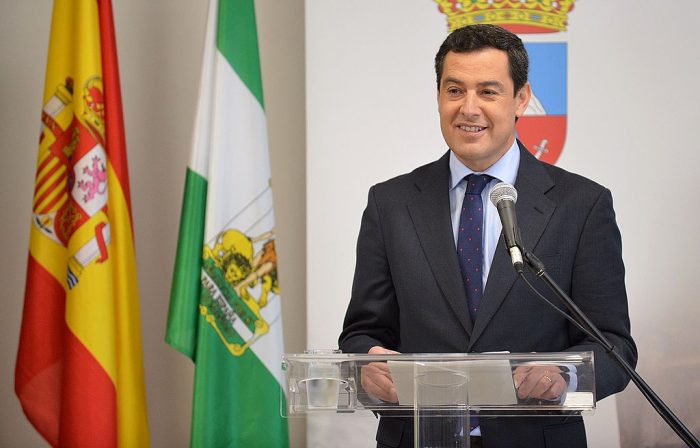SEVILLE – Juan Manuel Moreno spoke to El País regarding the decision to end the state of alarm in May, and vaccine supplies.
Currently, Andalucia’s Covid-19 incident rate (163) is lower than the Spanish average (167). The region’s president, Juan Manuel Moreno, spoke to El País on key topics regarding the government’s approach to the pandemic and vaccines.
Moreno warns of radical change in a month’s time
Asked about the ending of the state of alarm on 9th May, Moreno was disappointed in not being informed about the decision directly. Instead, he heard about it on the TV. He feels such decisions should be discussed with the autonomous communities, or at least inform them before the government goes public.
Moreno also believes the percentage of people vaccinated is not sufficient to lift the alarm. He said, “the pandemic has taught us that in a month everything can change radically.” He would rather there was a reasonable percentage of the population vaccinated. That way they could reduce current controls, such as increasing capacity and hours for hospitality or removing mandatory use of masks, for example.
Co-governance doesn’t exist
When asked what has and hasn’t worked in co-governance, Moreno was strong in his argument that co-governance does not in fact exist.
He said: “What does not exist cannot work and co-governance has not existed. Is it reasonable that in a first wave there would be conferences of presidents every Sunday and that in the second and third waves, much worse, the president of the government did not bring us together? The government of Spain ordered a second state of alarm and got out of the way. It left all the responsibility to the autonomous communities.”
Andalucia stretches the public euro
Moreno is convinced the autonomous regions, of all political persuasions, are doing their best to manage the situation effectively. “We have to stretch the public euro to build infrastructures”, he said.
In Andalucia, they built an auxiliary hospital – thankfully not used – in Málaga. The Military Hospital in Seville, closed 17 years ago, reopened. Plus, there has been assistance for the self-employed, families who have fallen on hard times.
Central government’s handling of vaccines
Moreno commented that with all the responsibility falling on the shoulders of the autonomous communities, central government had only one thing to do: “the management of European funds and the distribution of vaccines.”
However, this has not been a success according to Moreno. “And, unfortunately, the funds are not coming in and the vaccines are not in sufficient quantity either. I am not saying that it is the fault of the government of Spain, but support and someone on the other side has been lacking in these months.”
When questioned whether Andalucia would take the same approach as Madrid in sourcing their own vaccine supply, Moreno had this to say: “I believe and trust the European Union. […] I believe that it should be the channel that we use for vaccines, because it has more influence and economic capacity to buy the necessary doses. But if I see that the procedures fail, and that by going to the market I have a better chance of getting vaccines than through the current channels, I will. It is my obligation.”


